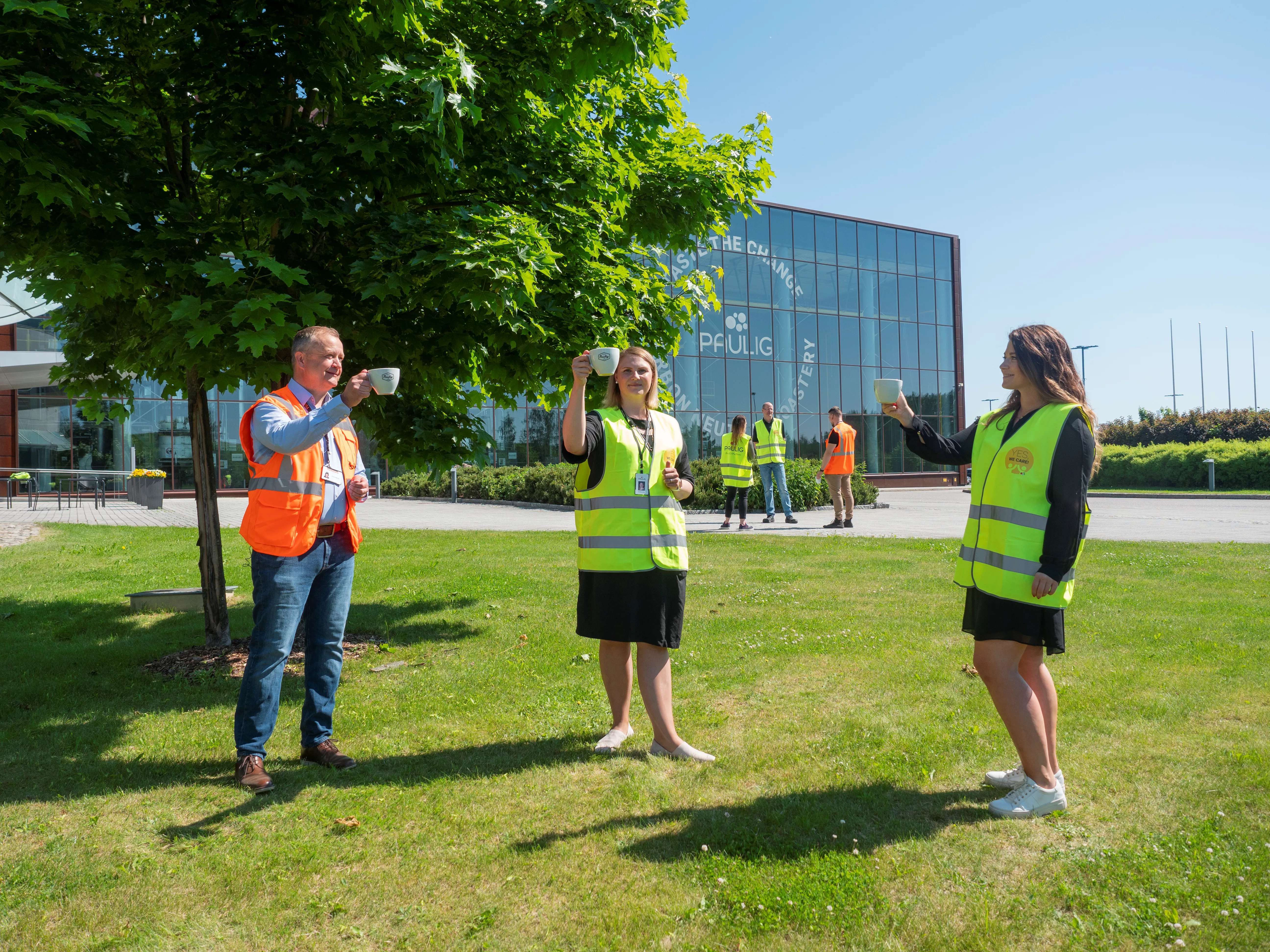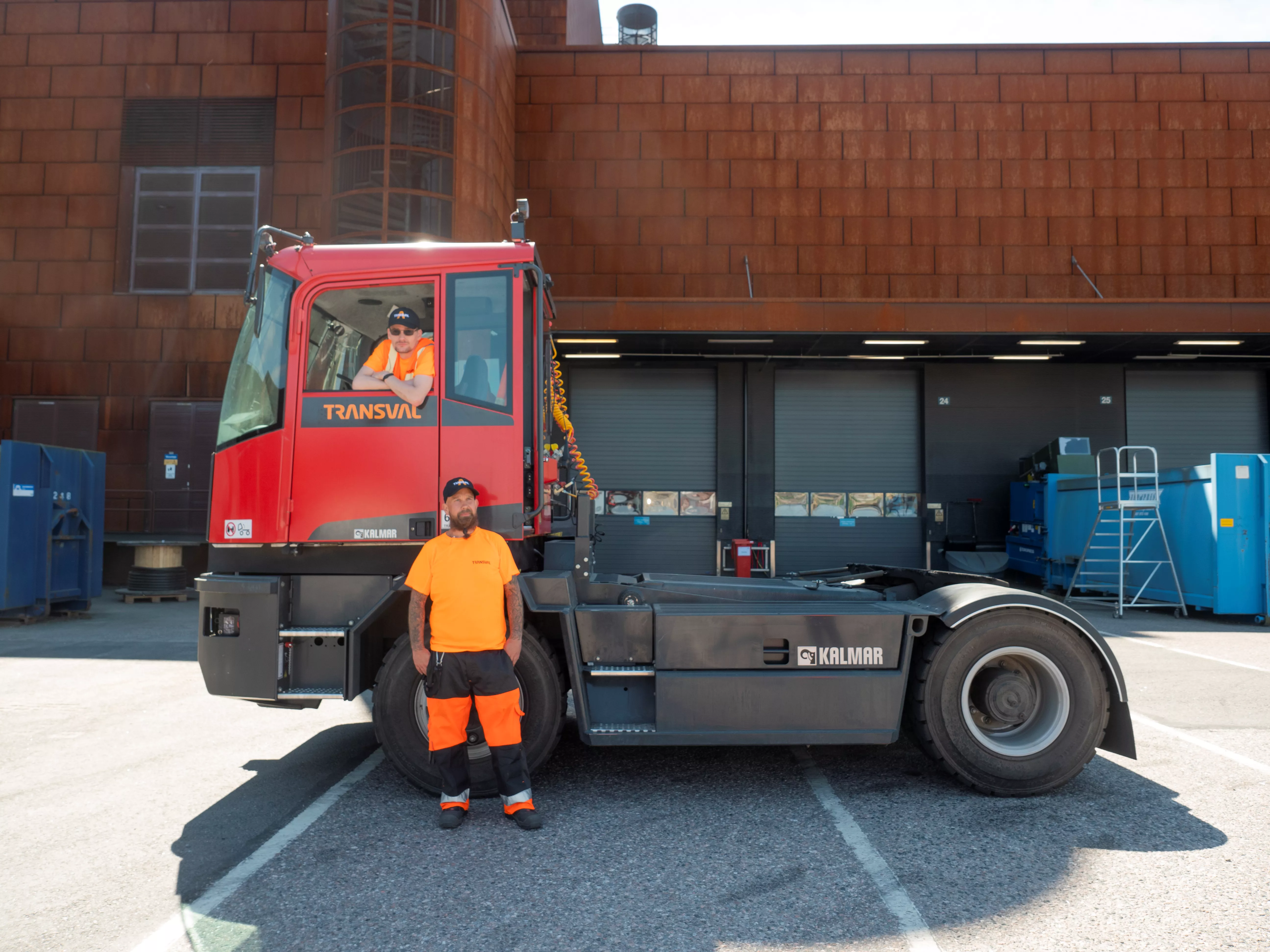
Together with Transval and Neste, food and beverage company Paulig will significantly reduce its greenhouse gas emissions originating from logistics within the Vuosaari harbour area in Finland. Transval’s terminal tractors that carry Paulig’s cargo from the depot area to warehouse in Vuosaari have switched to Neste MY Renewable Diesel as of June 2021.
This marks a significant reduction in Paulig’s logistics as greenhouse gas emissions from Neste MY Renewable Diesel are up to 90% lower over the lifecycle of the fuel compared to fossil diesel*. This translates into 51 tonnes of saved tank-to-wheel emissions every year.
“We have set very ambitious climate targets which have been approved by Science Based Targets initiative. Our aim is to reduce the greenhouse gas emissions from our own operations by 80% and from the value chain by 50% by 2030. On the logistics front, Paulig’s target is to reduce its logistics emissions by 25% by 2025 – and because Paulig’s logistics are exclusively carried out by partners, this requires working together with like-minded operators such as Transval,” says Thomas Panteli, SVP Supply Chain & Sourcing, Paulig.
Transval has been Paulig’s main logistics partner in the Vuosaari roastery since 2014. Transval has three terminal tractors that operate the green coffee logistics. All coffee beans roasted in Vuosaari go through this flow and are operated by a tractor at some point.
“For us at Transval, sustainability means concrete, measurable actions. We are already 100% carbon neutral, but that is not enough for us: our ambitious goal is to push our own emissions to zero by 2030. Switching to renewable fuels is a quick way to reduce CO2 emissions in logistics. We are proud as a company, but also as people, to join forces with Paulig and Neste to make life on Earth a little better,” says Transval’s Logistics Director Harri Petjala.

As the provider of the renewable diesel produced from 100% renewable raw materials, Neste sees partnerships similarly crucial.
“In addition to reducing our own carbon footprint, our climate target is to reduce our customers’ greenhouse gas emissions. We are proud to collaborate with Paulig and Transval to reach these goals together and I am happy to see we share the same ambition and values in sustainability. By partnering, we can achieve concrete actions towards a carbon neutral future”, says Heidi Peltonen, leading sustainable partnerships in Marketing & Services, Neste.
PAULIG is a family-owned food and beverage company, growing a new, sustainable food culture – one that is good for both people and the planet. Paulig’s ambition is to become a sustainability frontrunner in the food and beverage industry. Paulig’s target of reducing logistics emissions by 25% is part of the company’s wider objective of reducing greenhouse gas emissions from its own operations by 80% and from the value chain by 50% by 2030 from a 2018 baseline. 100% of Paulig’s coffee is already sustainably sourced and the company’s Vuosaari roastery is carbon neutral.
TRANSVAL is the market leader in providing logistics outsourcing solutions in Finland. Sustainability is a key part of Transval’s strategy, values and commitments, with emphasis on concrete actions. Transval’s services are already 100% carbon neutral. The objective of Transval and its parent company Posti is to reduce all emissions to zero by 2030. In addition to minimising its carbon footprint, Transval also strives to promote sustainability through its expertise, operations, leadership and risk management.
NESTE creates solutions for combating climate change and accelerating a shift to a circular economy. We refine waste, residues and innovative raw materials into renewable fuels and sustainable feedstock for plastics and other materials. Neste’s aim is to help customers to reduce greenhouse gas emissions with renewable and circular solutions by at least 20 million tons annually by 2030. As a technologically advanced refiner of high-quality oil products with a commitment to reach carbon-neutral production by 2035, Neste is also introducing renewable and recycled raw materials such as waste plastic as refinery raw materials.
Sources:
* The method used to calculate life cycle emissions and emission reduction complies with the EU Renewable Energy Directive (2009/28/EC).